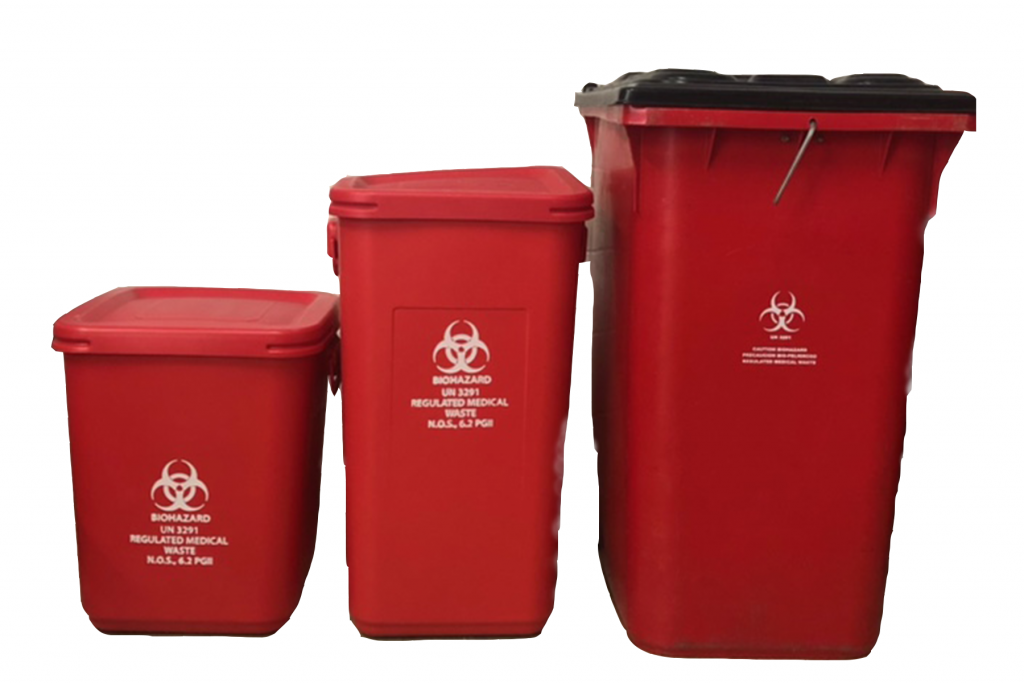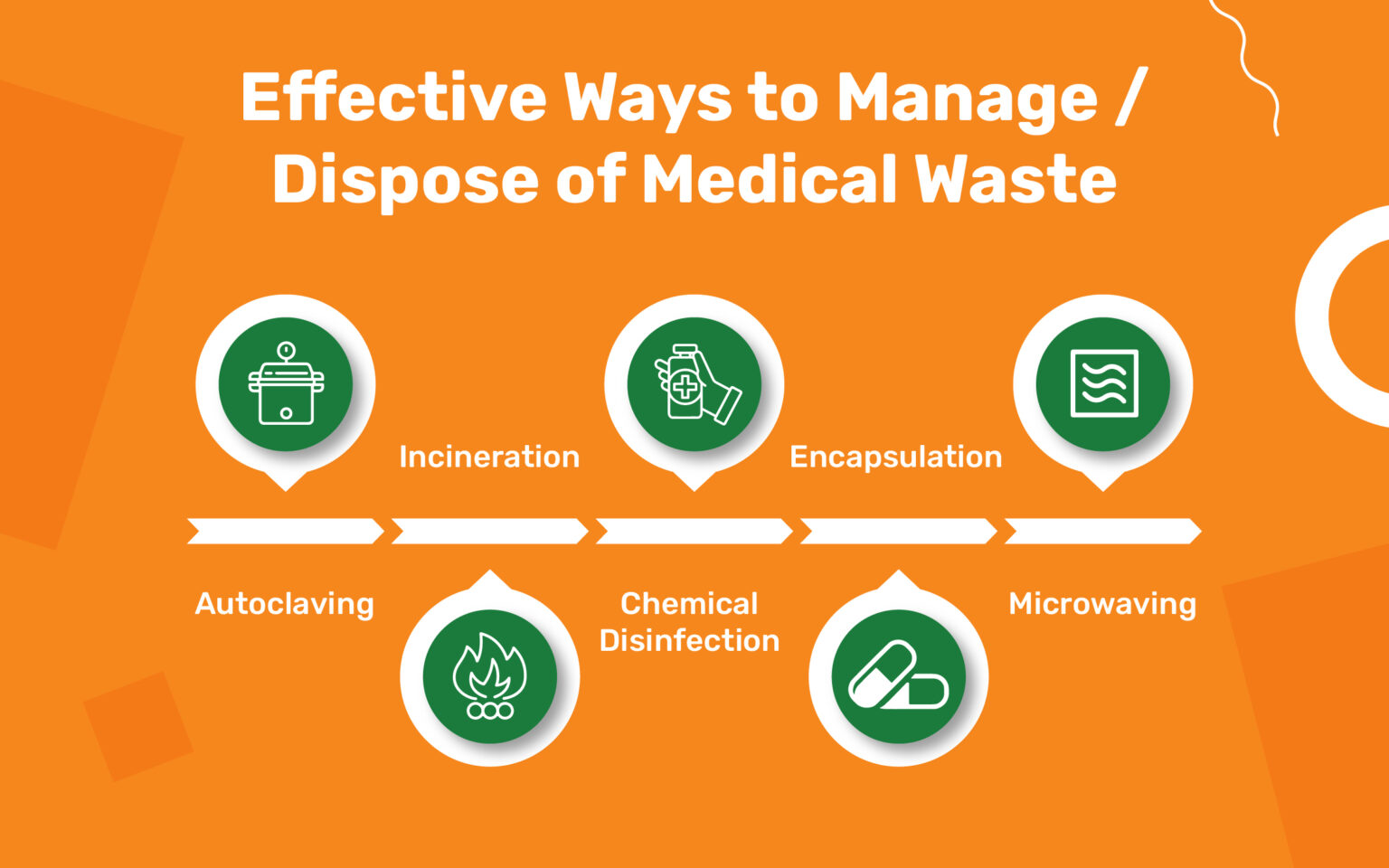Medical Waste Removal Quality: Elevating Safety Specifications in Your Facility
Medical Waste Removal Quality: Elevating Safety Specifications in Your Facility
Blog Article
Effective and Ecologically Friendly Medical Waste Disposal Solutions
In the ever-evolving field of healthcare, the issue of medical waste disposal remains a topic of vital significance. As healthcare facilities, facilities, and other medical care centers strive to provide high quality individual care, they need to additionally deal with the difficulty of effectively and sensibly disposing of their waste.
Waste Partition Practices
Reliable waste segregation techniques are important to guarantee the safe and appropriate disposal of medical waste. Clinical waste, that includes materials infected with potentially transmittable materials, have to be handled in such a way that minimizes the risk of damage to both public health and wellness and the setting. Correct waste partition plays a critical role in achieving this goal.
Waste segregation involves the separation of different sorts of waste based on their attributes and prospective dangers. This process ensures that each kind of waste is dealt with and dealt with properly (medical waste disposal services with WasteX). It begins at the factor of generation, where health care facilities need to have assigned containers and containers for various waste groups, such as sharps, transmittable waste, pharmaceutical waste, and non-hazardous waste
By segregating clinical waste at the source, medical care carriers can stop cross-contamination and decrease the threat of exposure to transmittable agents. This practice additionally assists in the recycling and healing of specific materials. Setting apart and recycling tidy plastics and glass lowers the demand for raw products and reduces the environmental influence of medical waste disposal.

Autoclaving and Sterilization Methods
In order to ensure the appropriate and safe disposal of clinical waste adhering to reliable waste segregation methods, medical care facilities must utilize autoclaving and sterilization methods. Autoclaving is a widely utilized approach that uses high-pressure steam to sanitize clinical waste.
This involves treating the waste with chemicals such as ethylene oxide or hydrogen peroxide, which kill microorganisms by disrupting their cellular structure. It is crucial to keep in mind that chemical sanitation calls for correct handling and disposal of the chemicals made use of, as they can be hazardous to human health and the environment if not managed correctly.
On-Site Waste Treatment Systems
Medical care facilities have carried out on-site waste therapy systems to attend to the disposal of clinical waste in a efficient and safe manner. These systems provide a convenient and cost-effective service for managing medical waste created within the center. On-site waste treatment systems use numerous technologies to dispose and treat of clinical waste on-site, decreasing the demand for transportation to off-site centers.
One frequently made use of on-site waste therapy system is the microwave technology. An additional system is the chemical disinfection technology, which involves treating clinical waste with chemicals to kill microorganisms and decrease its unsafe nature. medical waste disposal services with WasteX.
On-site waste treatment systems supply several benefits. Firstly, they get rid of the threat of clinical waste being messed up during transportation, decreasing the possibility for contamination and exposure to dangerous materials. Additionally, these systems assist health care facilities adhere to waste administration guidelines by supplying a convenient and efficient disposal method. On-site treatment systems decrease the general environmental impact of medical waste by minimizing transport and the demand for landfill space.
Recycling and Repurposing Initiatives
As healthcare centers make every effort for lasting waste monitoring techniques, they are progressively exploring recycling and repurposing initiatives as a method of reducing the ecological effect of clinical waste. Recycling and repurposing campaigns involve locating innovative means to reuse or transform medical waste into new items or materials. This not just assists to lessen the volume of waste that finishes up in burners or land fills but also lowers the consumption of raw materials and power needed for producing new products.
One example of reusing in the medical care sector is the reprocessing of single-use medical tools. This not just minimizes the amount of waste produced but likewise conserves healthcare facilities substantial expenses associated with acquiring new gadgets.
An additional recycling effort entails the recycling of plastic containers, such as medicine containers or syringe casings. These containers can be gathered, arranged, and sent out to reusing facilities where they are refined, thawed down, and transformed view into new plastic items. This aids to preserve resources and minimize the need for virgin plastic production.
In addition to recycling, repurposing efforts entail finding alternate usages for clinical waste. As an example, shredded paper waste from clinical documents or product packaging products can be repurposed as bed linen visit this page material for animals or as insulation material (medical waste removal service). Likewise, organic waste such as food scraps from healthcare facilities can be composted and utilized as fertilizer in gardens or agricultural fields.

Renewable Resource Solutions
One reliable method to alleviating the environmental influence of health care procedures includes executing sustainable power solutions. Medical care centers, such as facilities and healthcare facilities, take in considerable amounts of energy for numerous functions, including lighting, home heating, cooling, and running clinical devices. By transitioning to renewable power resources, these facilities can significantly reduce their carbon impact and add to a more lasting future.

Applying renewable resource options in medical care centers not only reduces greenhouse gas exhausts but additionally provides lasting expense financial savings. While the first financial investment in renewable resource infrastructure may be higher, the long-lasting functional prices of eco-friendly power systems are substantially lower contrasted to typical fossil fuel-based power resources. In addition, renewable resource systems are reputable and can supply a secure and uninterrupted power supply, guaranteeing continuous healthcare services even during power interruptions or emergency situations.
Final Thought
In verdict, carrying out efficient and eco friendly clinical waste disposal services is important for keeping a sustainable medical care system. By adopting waste partition practices, autoclaving and sterilization strategies, on-site waste treatment systems, reusing and repurposing initiatives, and sustainable power useful content services, medical care facilities can substantially lower their ecological influence.
It starts at the factor of generation, where medical care facilities must have designated bins and containers for various waste categories, such as sharps, transmittable waste, pharmaceutical waste, and non-hazardous waste.
In order to ensure the risk-free and correct disposal of medical waste complying with reliable waste segregation practices, health care centers must employ autoclaving and sanitation methods.Medical care facilities have executed on-site waste therapy systems to deal with the disposal of medical waste in a safe and efficient manner. On-site waste therapy systems use various modern technologies to deal with and get rid of of clinical waste on-site, decreasing the demand for transport to off-site facilities.
As healthcare centers make every effort for sustainable waste management methods, they are progressively checking out recycling and repurposing efforts as a method of minimizing the ecological effect of clinical waste. - medical waste removal near me
Report this page